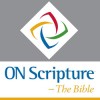By Stephanie Buckhanon Crowder.
For one year, five French students of different faiths traveled the world to document different models of interfaith dialogue.
There are people who irk us. Something about their ideas, talk, or disposition gets under our skin. Their idiosyncrasies are like sandpaper to our souls. To be honest, we are perhaps just as irritating. The way we talk on the phone in public, how we drive in rush hour traffic, our aggression getting off a train or standing in line can be just as disturbing. We can get on each other’s nerves. Because we cannot control each other, we easily get annoyed with one another.
Yet what happens when God is the one who pricks our emotional equilibrium? What is humanity’s recourse when the Creator is the source of our angst? More personally, it seems we are not as accommodating of individual views or approaches to the “Divine.” Just as people come from multiple social locations and backgrounds, so are their religious traditions. However, respect for such faith diversity proves challenging.
The United States celebrates Independence Day this weekend. Through the lens of fireworks, barbeque, political speeches and red, white and blue, many will cavort over the freedom this country affords. For almost 230 years America has danced to its own independent music. For many it is song filled with ear-pleasing melodies and harmony. Others lift tunes of tragedy and cacophony. Some are free to join the American chorus, but not all are welcome.
History notes the Pilgrims and Puritans came to these shores in search of religious liberty. They traversed treacherous waters searching for the peace to practice their faith. However, there was not space for all to do the same. Manifest destiny quickly crystallized into man-mandated divinity. According to Kelly Brown Douglas: “Thomas Jefferson considered Americans the New Israelite. Like Benjamin Franklin both purported that Ango-Saxonism was the new religion. The seal they proposed for America symbolized an understanding of American’s divine purpose.” Although their primary interest was in the power of Anglo-Saxonism, Jefferson and Franklin employed Christian symbols to affirm their divine right. Thus, in many ways the founding of America resonates not only with particular racial qualities, but with said racial-religious, i.e., Christian connotations.
Two centuries later the statistics on American religious diversity speak to a shift from such monolithic ideologies. Pew Forum studies show that Christianity in America has declined 8 percent in the last seven years while the numbers of those professing non-Christian beliefs is rising incrementally. The largest increase has been among Muslims and Hindus. The portrait is just as telling from a global perspective with 32 percent of people professing to be Christian, 23 percent Muslim, 15 percent Hindu, and 7 percent Buddhist.
This changing religious landscape underscores the need for interreligious engagement. There is a clarion call for conversation, not conversion. Institutions of theological education such as Chicago Theological Seminary and Hartford Seminary are at the forefront of preparing religious leaders for such dialogue. There may be similar a “theo,” but different “-ologies.”
A social and communal urgency undergirds this propulsion toward interfaith dialogue. Images from 9/11 are forever etched in America’s memories as our Muslim brothers and sisters, like Tahera Ahmad, continue to experience harassment and discrimination. In order to understand the religious anomalies that are ISIS and Boko Haram, people must sit at the table and break bread with those who can explain such faith gone rogue.
Nonetheless, despite the religious diversity in the world and the interfaith changes occurring in the U.S., references to “Allah,” “Adonai,” “Spirit” and “Holy One” prove challenging. What others deem non-traditional or unacceptable names of “god” have become a theological thorn in the flesh, a thorn that should be deracinated from the American/Christian soul.
The Apostle Paul has a thorn in the flesh. It is not rooted in his refusal to honor religious diversity. Paul’s thorn is personal. His exchanges with the church at Corinth were messy and heated. Their relationship reads like a marriage on the brink of disaster. In the midst of these coarse verbal exchanges, the writer pleads for divine intervention. God gives a resounding, “No!” Paul must deal with whatever disturbs him. He must come to terms with whomever pricks his nerves.
The divine response is for Paul to handle his “issues” with the sexualized community at Corinth. Consequently his problem is not only with people, but also with God. God does not acquiesce to Paul’s request for relief. The Creator does not submit to the whims of the creation. Instead, God’s grace, support and help will be what Paul needs. So, Paul, get over it. Let grace do its work.
One must note that Paul’s modus operandi was meeting new communities on their own cultural and religious turf. He stepped out of his Jewish comfort zone and exposed himself to Gentile mores. Yes, his motive was proclaiming Jesus Christ as Savior. Yet, his manner of honoring the prolific faith traditions prevalent in first century Mediterranean communities is worth lifting. In his own words, he became “ all things to all people.”
The Parliament of World Religions 2015 Council, will convene this fall. As one of the most established gatherings of people from all faiths and traditions, it is an opportunity to meet people whose views on the divine may be different, but whose care for social justice and peace is the same.
From the writings of Paul to the work of the Parliament, it is apparent. Interreligious engagement builds human relationships. Freedom is individual liberty. Freedom is communal. Freedom is global.
Until all are free to live, move, be, and pray or not pray, none are free.
Bible Study Questions:
1. What does “freedom” mean to you?
2. Paul has a thorn in the flesh. Describe a “thorny” situation in your life.
3. What are three steps we can take to engage someone from another religious tradition, atheist, or agnostic?
For Further Reading:
Kelly Brown Douglas, Stand Your Ground: Black Bodies and the Justice of God
Jennifer Harvey, Dear White Christians: For Those Still Longing for Racial Reconciliation
Pope Francis, “We must be forthright in interfaith dialogue”
 Rev. Dr. Stephanie Buckhanon Crowder is an author, minister, and biblical scholar. Dr. Crowder earned a Bachelor of Science degree summa cum laude in Speech Pathology/Audiology from Howard University. She was the Student Commencement Speaker for her college graduation. She received her Master of Divinity degree from United Theological Seminary and earned its Anderson Theology Award.
Rev. Dr. Stephanie Buckhanon Crowder is an author, minister, and biblical scholar. Dr. Crowder earned a Bachelor of Science degree summa cum laude in Speech Pathology/Audiology from Howard University. She was the Student Commencement Speaker for her college graduation. She received her Master of Divinity degree from United Theological Seminary and earned its Anderson Theology Award.
Dr. Crowder received Master of Arts and Doctor of Philosophy degrees in Religion (New Testament) from Vanderbilt University. She was a Fund for Theological Education Dissertation Fellow, a Wabash Center for Teaching Fellow and a Louisville Institute Summer Grant recipient. Dr. Crowder has published in The Chalice Introduction to the New Testament, True to Our Native Land: An African American New Testament Commentary, and The African American Lectionary.
Many of Dr. Crowder’s sermons have appeared in the Nashville newspaper, The Tennesseean. Her biweekly blogs can be found on The Huffington Post. She has an upcoming article on New Testament themes in R and B music and recently signed a contract to write a book on womanist ideas of motherhood. Dr. Crowder serves on the Editorial Boards of ON Scripture, a pop culture online commentary, and Feasting on the Gospels, a revised common lectionary commentary series.
Dr. Crowder is married to Rev. Dr. William E. Crowder, Jr., Pastor of Park Manor Christian Church in Chicago, IL. The Crowders are the founders of Move the Crowd Ministries. They have two sons.
About ON Scripture
Learn more about the ON Scripture Committee
Like ON Scripture on Facebook
Follow ON Scripture on Twitter @ONScripture
ON Scripture – The Bible is made possible by generous grants from the Lilly Endowment and the Henry Luce Foundation


















